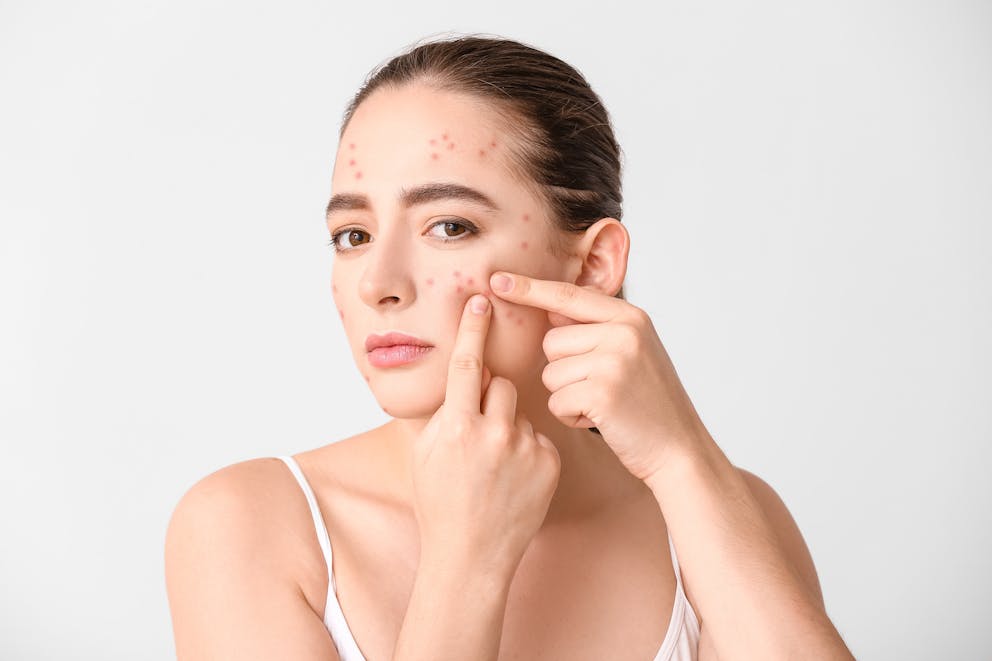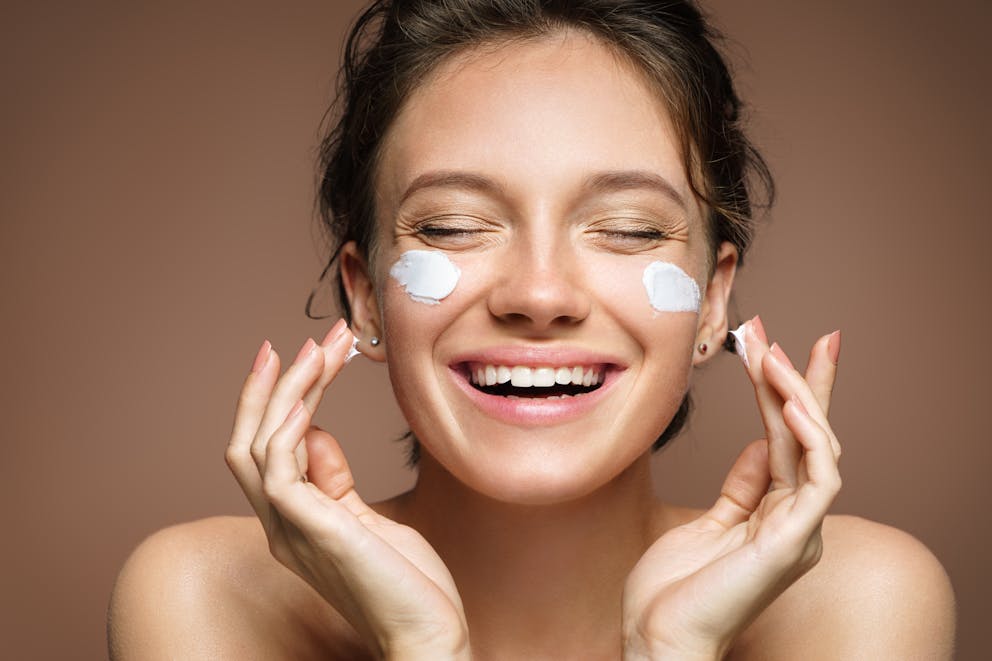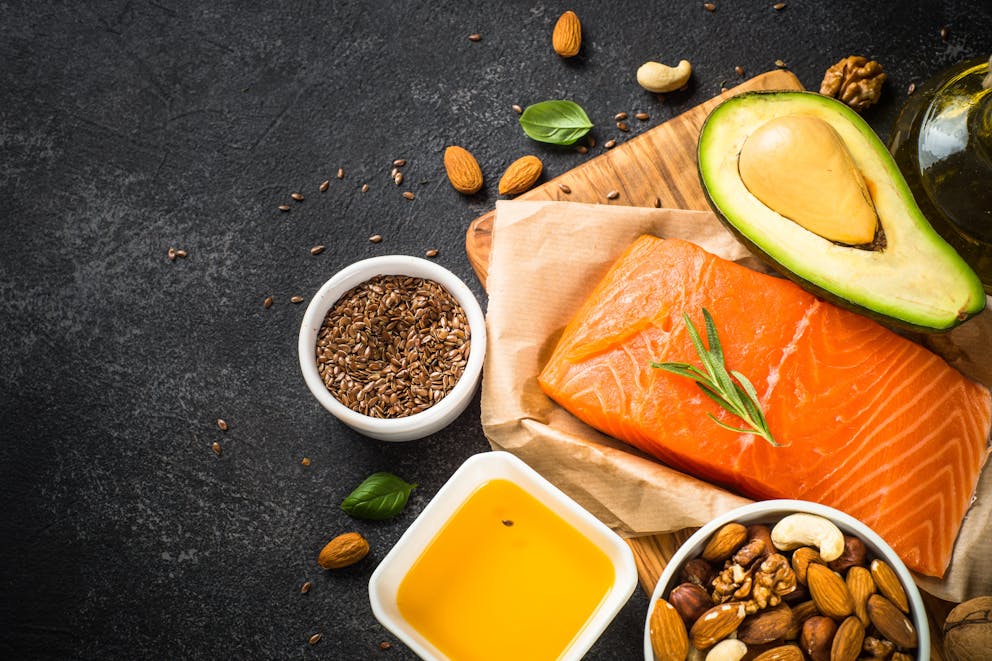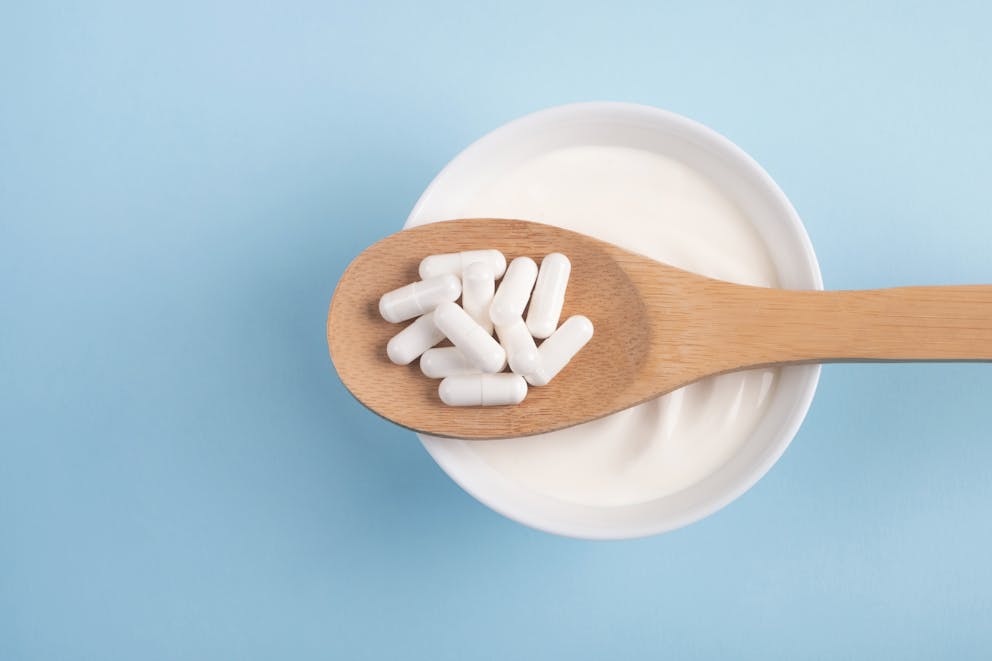The Best Cleanse for Skin Health – Acne, Wrinkles, & Liver Spots
The condition of your skin can reflect your overall health status, and skin problems such as acne, irritated skin, or loss of skin elasticity can indicate poor detoxification processes, hormonal imbalances, and inflammation.
Discover the best cleanse for skin and learn how making beneficial dietary and lifestyle changes can clear up skin and reverse signs of premature skin aging.

Do you need to cleanse your skin?
Yes, your skin requires regular external and internal cleansing to eliminate toxins, remove dead skin cells, stimulate blood flow, and promote optimal oxygenation and nutrient exchange.
While a consistent skincare routine can help maintain skin health, making beneficial dietary and lifestyle choices is equally important for a glowing complexion.
The skin is the body’s largest organ, and skin conditions such as acne, dry skin, or liver spots can indicate inflammation, hormonal imbalances, nutrient deficiencies, or poor detoxification processes.
Research published in the Annals of Medicine suggests that various skin issues can be early warning signs of poor liver function and impaired toxin elimination.
“An accumulation of toxins can trigger systemic inflammation linked to acne, psoriasis, and sensitive skin,” explains Dr. Berg. “Enhancing the liver’s ability to remove potentially harmful substances helps detox your body, which is crucial for achieving healthier skin.”
Watch the video below to discover the best anti-aging hacks for a youthful appearance.
Anti-Aging Hacks for a Youthful Appearance
The effects of diet and lifestyle on skin health
It’s hard to ignore the importance of a nutritious diet for maintaining skin health, and research published in Nutrients confirms that dietary habits play a crucial role in skin structure, skin tone, and the skin’s aging processes.
The skin requires adequate hydration, vitamins, minerals and antioxidants. Nutrients such as vitamin C and copper are critical for skin cell renewal, skin elasticity, and wound healing.
Vitamin C deficiency can cause liver spots and may lead to impaired immune system functions, which is associated with an increased risk of microbial skin infections linked to acne, fungal overgrowth, and skin lesions.
A poor diet high in processed foods, sugars, and refined carbohydrates can contribute to inflammation and trigger or worsen skin problems such as eczema and psoriasis.
Maintaining a healthy lifestyle also plays a significant role in skin health.
Physical activity improves blood flow, which delivers oxygen and nutrients to skin cells and aids in the removal and elimination of toxins.
Lack of adequate sleep and chronic stress can negatively affect skin repair and skin cell regeneration, leading to a dull complexion and the formation of lines and wrinkles.

8 ways to cleanse your skin
To effectively cleanse your skin, it’s vital to choose the right skincare products for your skin type, avoid harsh chemicals, limit exposure to skin-damaging substances, and promote the body’s detoxification processes.
The skin plays a vital role in eliminating toxins through sweat, and poor liver function can increase the skin's detoxification burden, which can cause oxidative stress and inflammation associated with various skin problems.
Here are eight ways to naturally cleanse your skin.
1. Reduce stress
Chronic stress has detrimental effects on skin health and has been linked to premature aging and an increased risk of inflammatory skin conditions.
A study published in Inflammation and Allergy Drug Therapy found that stress can trigger mast cells in the skin to release proinflammatory compounds, which can cause long-term skin damage and exacerbate skin issues, including skin sensitivities, allergies, psoriasis, and acne.
Getting adequate sleep, engaging in physical activity, and practicing stress reduction techniques such as deep breathing exercises can help reduce stress and mitigate the negative impact of chronic stress on the skin.
2. Avoid sugar and refined carbs
A diet high in sugar and carbohydrates triggers the increased release of insulin, a critical metabolic hormone needed to regulate blood sugar levels.
While insulin is crucial to maintaining metabolic balance, excessive insulin levels can cause hormonal imbalances and upregulate testosterone release, which stimulates sebaceous gland activity and oil release.
Excessive oil and sebum can lead to oily skin and clogged pores, increasing the risk of acne and other skin problems.
Limiting carbohydrates helps maintain balanced insulin and testosterone levels, which explains why a low-carb ketogenic diet can help manage various hormone-related skin issues, including cyclic acne, premenstrual breakouts, and skin problems related to polycystic ovarian syndrome (PCOS).

3. Consume plenty of healthy fats
The importance of healthy fats for clear skin is often overlooked. However, fatty acids support various critical skin functions and can help reverse wrinkles.
The skin’s natural barrier is composed of lipids, which minimize water loss and keep skin hydrated. Consuming healthy fats such as avocado, oily fish, grass-fed butter, nuts, seeds, and olive oil can strengthen this lipid layer and help prevent dry skin and the development of lines and wrinkles.
In addition, omega-3 fatty acids, which are found predominantly in oily fish, have potent anti-inflammatory properties that can lower the risk of inflammatory skin conditions, including acne, eczema, and psoriasis.
A study published in Cutis investigated the effects of a high-fat ketogenic diet in the management of skin diseases and concluded, “Based on the available data, there is potential for use of the ketogenic diet for various dermatologic applications.”
Not only does a nutritious high-fat diet like Healthy Keto® provide plenty of healthy fats to support hydrated skin, but keto can reduce liver fat, which enhances the body’s ability to process and eliminate toxins.
4. Stop using harsh cleansers
The skin's outermost layer is a barrier that prevents water loss and protects against environmental irritants.
Unfortunately, many skin care products can harm the skin as they contain harsh ingredients that alter the skin’s pH levels and damage the skin barrier, resulting in redness and inflammation.
Using harsh cleaners is one of the biggest mistakes in trying to get rid of acne. It’s best to avoid facial cleansers formulated with alcohol, mineral oil, dyes, or synthetic fragrances and instead choose mild cleansing products labeled fragrance-free or hypoallergenic.

5. Read skin care product labels
It’s crucial to read product labels to understand what ingredients are in the skincare products you plan to use. This can be especially beneficial for individuals with sensitive skin and allergies.
Different skincare products target specific skin concerns, and understanding the product's intended use can help formulate a skincare routine based on your skin type and health goals.
Certain ingredients may not be compatible, and carefully checking labels and instructions helps avoid using products that may counteract each other and cause unwanted reactions or side effects.
6. Avoid alcohol and tobacco
Avoiding alcohol and stopping smoking can support a brighter complexion, slow down skin aging, and promote healthy-looking skin.
Alcohol is a diuretic and can dehydrate body tissues, including the skin. In addition, alcohol widens the small blood vessels near the skin's surface, which explains why alcohol consumption can lead to redness and the appearance of facial spider veins.
Smoking tobacco can reduce blood flow to the skin, which impairs the delivery of oxygen and nutrients to skin cells. This can result in a dull complexion, delayed wound healing, loss of skin elasticity, and the formation of wrinkles.
In addition, alcohol and smoking expose the body to high concentrations of toxins, which can contribute to inflammation and oxidative stress linked to poor skin health and skin inflammation.

7. Support a healthy microbiome
Evidence suggests that probiotics may have potential benefits in managing specific skin conditions.
Research published in Immunity, Disease, and Inflammation found that certain Lactobacillus strains can lower systemic inflammation and support a balanced skin microbiome, which can help manage and prevent fungal acne and other microbial skin issues.
Taking a probiotic supplement or consuming probiotic-rich foods such as miso, natto, sauerkraut, kefir, yogurt, and kombucha can promote a diverse microbial ecosystem within the gut, which lowers the risk of yeast infections that can affect the skin.
8. Limit exposure to endocrine disruptors
Endocrine disruptors are chemicals that can interfere with the body’s hormone balance.
Hormones are crucial in maintaining skin health and regulating processes such as sebum production, collagen synthesis, and skin cell turnover.
Endocrine disruptors can impair normal skin cell function, leading to skin issues such as oily skin, facial redness, acne, breakouts, or skin irritation.
Unfortunately, many skin and hair care products contain parabens, sulfates, and phthalates. These chemical compounds are endocrine disruptors, which can be especially problematic as they’re directly applied to the skin.
To minimize the risk of hormone imbalances and related skin issues, opt for beauty products labeled paraben-, sulfate-, and phthalate-free and avoid synthetic fragrances, which also have been found to contribute to skin sensitivity and irritation.

Key takeaways
The best cleanse for skin focuses on improving skin cell function by lowering stress hormones, avoiding alcohol and tobacco, and limiting exposure to harsh skincare ingredients and endocrine disruptors.
In addition, following a nutritious low-carb diet like Healthy Keto and consuming plenty of probiotic foods promotes hormonal balance and can lower inflammation, both of which are linked to poor skin health, premature aging, and the development of various skin issues, including acne, psoriasis, and eczema.
FAQ
1. What is the best natural cleanse for skin health?
The most effective natural cleanse for your skin focuses on stress reduction, a nutritious low-carb diet like Healthy Keto®, and plenty of probiotic foods to lower inflammation, which can trigger or worsen skin issues.
In addition, it’s crucial to avoid alcohol and tobacco and check product labels to identify harsh or potentially harmful ingredients such as parabens, sulfates, or phthalates.
2. Can you detox your body through your skin?
While the skin can eliminate certain toxins via sweat, the liver and kidneys process and remove the majority of toxins via the stool and urine.
However, promoting healthy skin function in combination with activities such as saunas or hot baths can support skin-related detoxification processes.
3. Will a liver detox clear my skin?
Yes, a liver detox can help achieve healthier-looking skin.
Poor liver function can lead to a buildup of toxins and may increase the skin’s detoxification burden, which can trigger inflammation, redness, and sensitive skin. Promoting healthy liver function improves toxin clearance, thereby reducing the risk of skin inflammation.
4. What is the best natural facial wash?
The best natural facial wash for your needs depends on your skin type and your skincare preferences.
However, some of the best natural facial wash options contain ingredients such as tea tree oil, chamomile, aloe vera, or coconut oil.
5. How do I detox to get rid of acne?
Acne is often a symptom of underlying hormone imbalances, poor detoxification processes, or microbial overgrowth.
Focusing on a low-carb diet rich in healthy fats and consuming plenty of probiotic foods promotes hormone balance and can help lower inflammation, which are crucial aspects for maintaining skin health.
6. How long does it take to detox your skin?
How long it takes to detox your skin depends on your skin health, overall health status, and skincare routine.
Many people notice clearer skin within two weeks of making beneficial dietary and lifestyle changes. However, it can take up to three months of consistent skin cleansing to reverse signs of premature aging or to improve more severe skin issues.
Sources
Tags

Popular
08/21/2024
53.6K views
02/23/2025
45.4K views
11/18/2024
270.1K views
03/18/2024
11/21/2022




